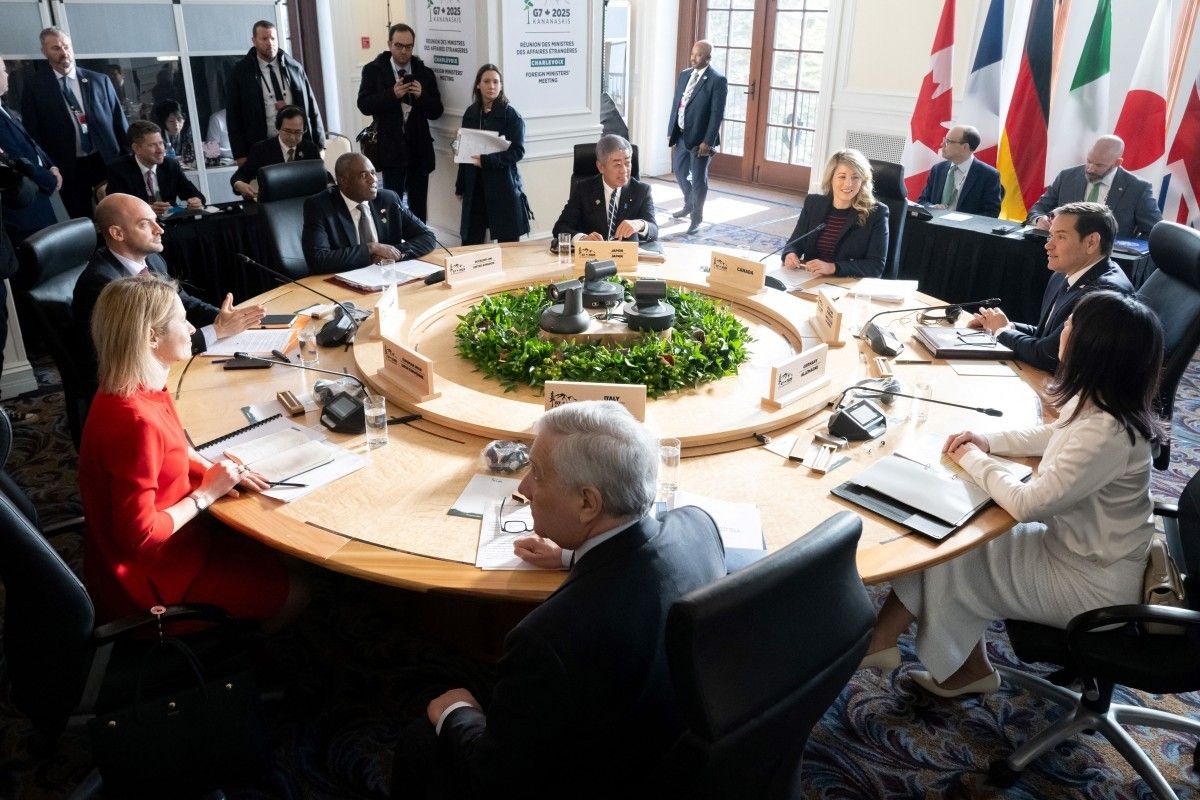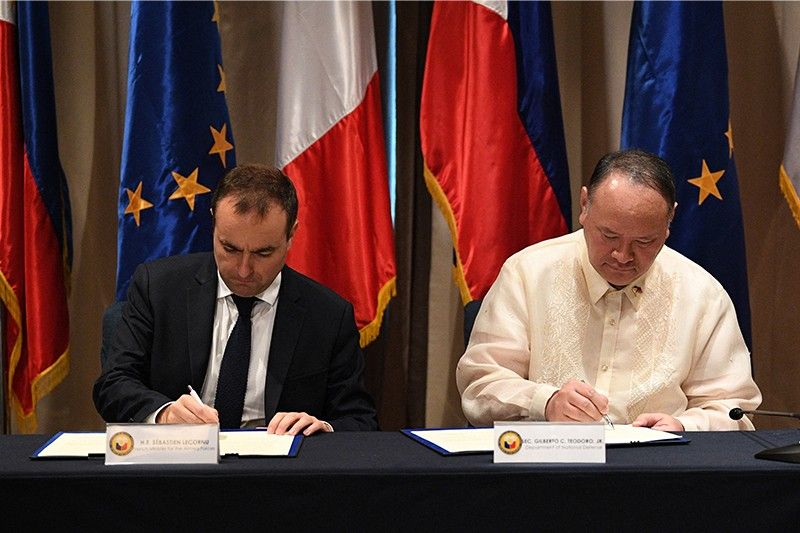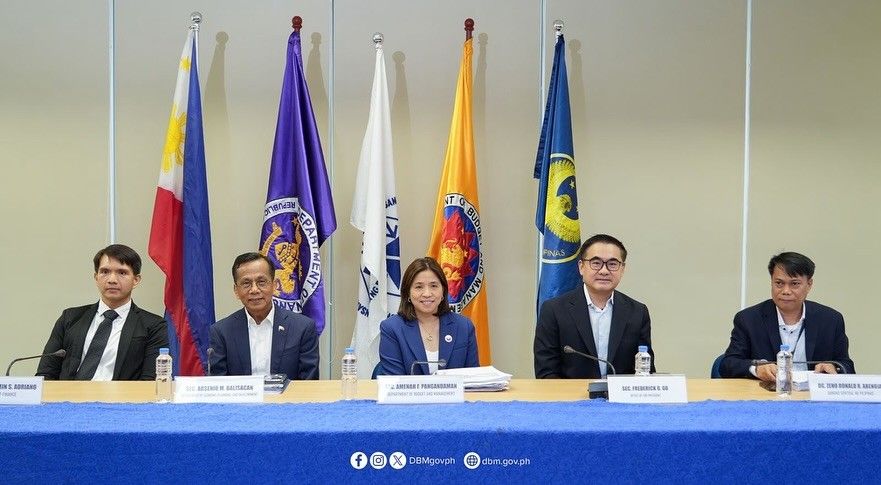
Upgrade to High-Speed Internet for only ₱1499/month!
Enjoy up to 100 Mbps fiber broadband, perfect for browsing, streaming, and gaming.
Visit Suniway.ph to learn
Cristina Chi - Philstar.com
May 2, 2025 | 10:31am
Former Philippine President Rodrigo Duterte is seen on a screen in the courtroom during his first appearance before the International Criminal Court (ICC) on charge of crimes against humanity over his deadly crackdown on narcotics, in The Hague on March 14, 2025.
AFP / Peter Dejong / Pool
MANILA, Philippines — Former President Rodrigo Duterte's lawyers have formally sought the dismissal of his case by arguing the International Criminal Court cannot exercise its jurisdiction after the Philippines' withdrawal from the Rome Statute in 2019.
In a 38-page filing submitted Thursday, May 1, Duterte's lawyers Nicholas Kaufman and Dov Jacobs claimed the court overstepped its authority by approving the investigation into the so-called "war on drugs" in September 2021 when the Philippines was no longer a member state — a procedural challenge aimed at preventing Duterte's case from going to trial.
The defense team's challenge comes around four months before the ICC is set to hold the confirmation of charges hearing for Duterte, who was arrested by authorities on March 11 and subsequently transferred to ICC custody in The Hague the next day.
Duterte faces charges of crimes against humanity related to thousands of alleged extrajudicial killings during his administration's controversial drug war.
At the core of Duterte's argument to junk his case is, as expected, the timing: while the ICC maintains jurisdiction over crimes committed from 2011 to 2019, Duterte's defense team argued that it cannot legally exercise that jurisdiction because the country had already withdrawn from the Rome Statute when prosecutors sought formal authorization to investigate in May 2021.
The Rome Statute is the founding treaty that established the ICC.
"The liberty of the individual is at stake and the present Prosecutor should not be fighting tooth and nail to perpetuate or defend an erroneous decision taken by his predecessor," Duterte's lawyers wrote in their filing, requesting his "immediate and unconditional release."
Reviving the jurisdiction issue
The defense filing distinguishes between the ICC having "jurisdiction" over crimes committed during Philippines' membership and the ICC's authority to "exercise jurisdiction" after the country's withdrawal.
They argue that Article 12(2) of the Rome Statute requires a country to be "contemporaneously a party" to the ICC when the court decides to exercise jurisdiction.
Duterte's lawyers also argued that a preliminary examination conducted before the withdrawal is not a "matter under consideration by the Court" as defined in Article 127(2), which governs the effect of withdrawals. According to the filing, the expression "by the Court" in this provision refers to the judicial organ of the Court — not including the prosecutor.
"For the sake of judicial efficiency, the Defence submits that this challenge should be resolved as a preliminary matter. Such an approach will prevent the unnecessary expenditure of resources incurred by allowing a confirmation of charges hearing to proceed in the absence of any jurisdictional basis," Duterte's defense team wrote.
It is this jurisdictional question that has previously divided ICC judges. In July 2023, the ICC Appeals Chamber allowed the investigation to continue in a 3-2 decision, with two dissenting judges arguing the ICC cannot exercise jurisdiction in the Philippines.
The Philippines joined the ICC in 2011 but began the withdrawal process in March 2018 under Duterte, after then-ICC Prosecutor Fatou Bensouda announced a preliminary examination of the drug war killings during his administration. The withdrawal became officially effective on March 17, 2019.
Pushback vs international mechanisms
During his presidency, Duterte had repeatedly and openly thwarted attempts by international bodies to scrutinize his brutal anti-illegal drugs campaign. He called the ICC "useless" and "hypocritical," and, at one point, threatened to slap a United Nations special rapporteur for condemning the extra-judicial killings in his drug war.
Despite his camp's attempt to junk his case, it is the former president himself who, last year, dared the ICC to "hurry up" in its drug war investigation.
The former president said in a Senate probe last year that he takes "full responsibility" for the actions of law enforcers during his anti-illegal drugs campaign.
The ICC Pre-Trial Chamber I issued the arrest warrant against Duterte on March 7, determining that "there are reasonable grounds to believe that Mr. Duterte bears criminal responsibility for the crime against humanity of murder."
The chamber specifically noted that the case falls within the ICC's jurisdiction because "the alleged crimes occurred during the period when the Philippines was a State Party to the Rome Statute."

 1 month ago
82
1 month ago
82



